Hello! Summer is coming and the hot days are continuing, so please take care of your health. Speaking of hot, the Olympics and Paralympics, Paris 2024 are being held since last month. The athletes’ competitions make our hearts burn with excitement. By the way, when it comes to Paris and Sake, there is a connection with the Exposition Universelle, as we have previously mentioned. Hakushika’s sake was awarded a gold medal at the Paris Exposition in 1889. In this issue, we introduce about a relationship between Paris and Sake except for exposition.
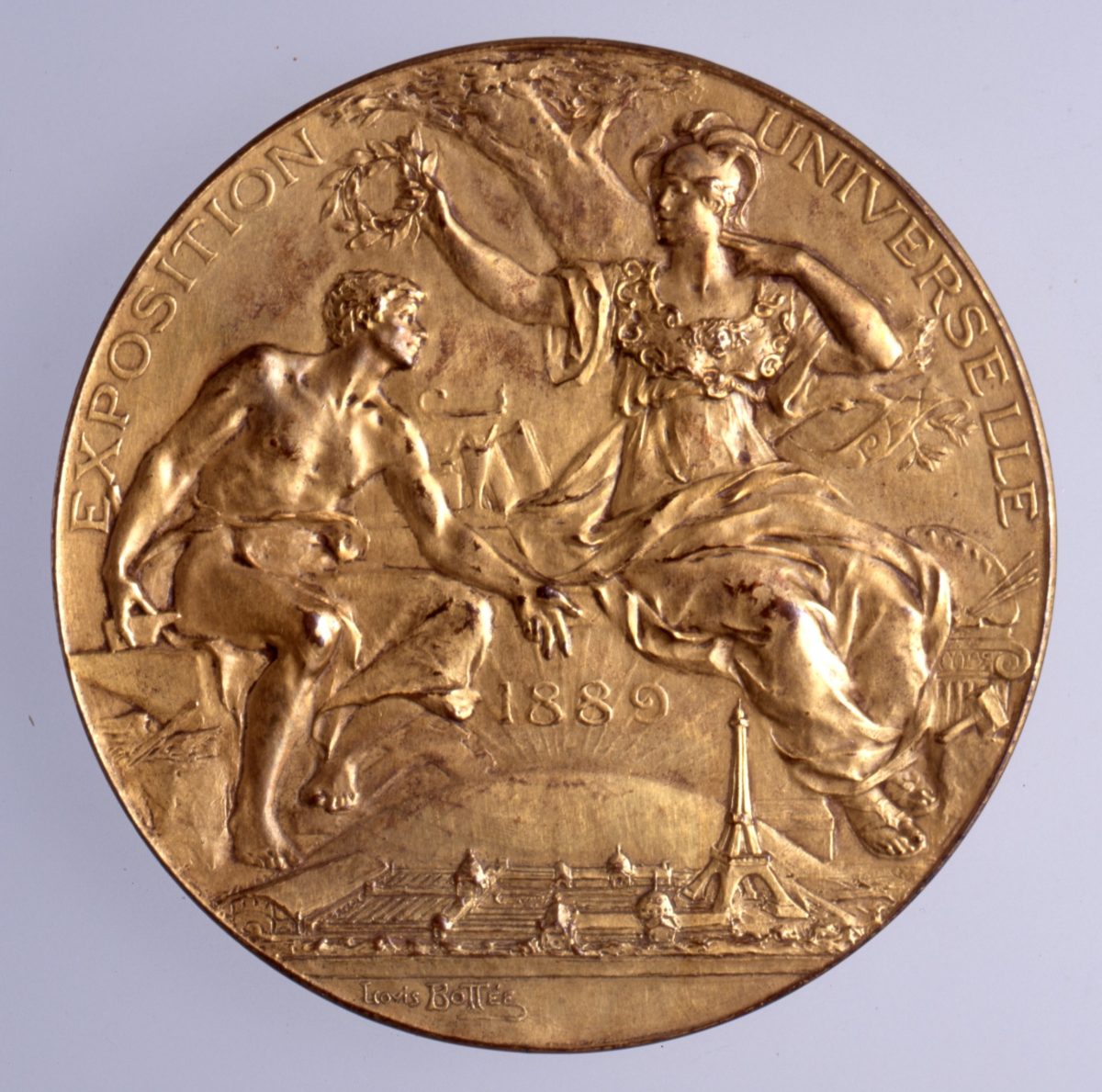
The exposition did not necessarily lead to an increase in exports of sake to Paris and the rest of Europe. After all, the consumption of sake overseas before the World War Ⅱ was due to the Japanese in the region. Among the historical documents in the Sake Museum’s collection, the documents of prewar transactions with Paris are those with the Japanese Embassy in France.
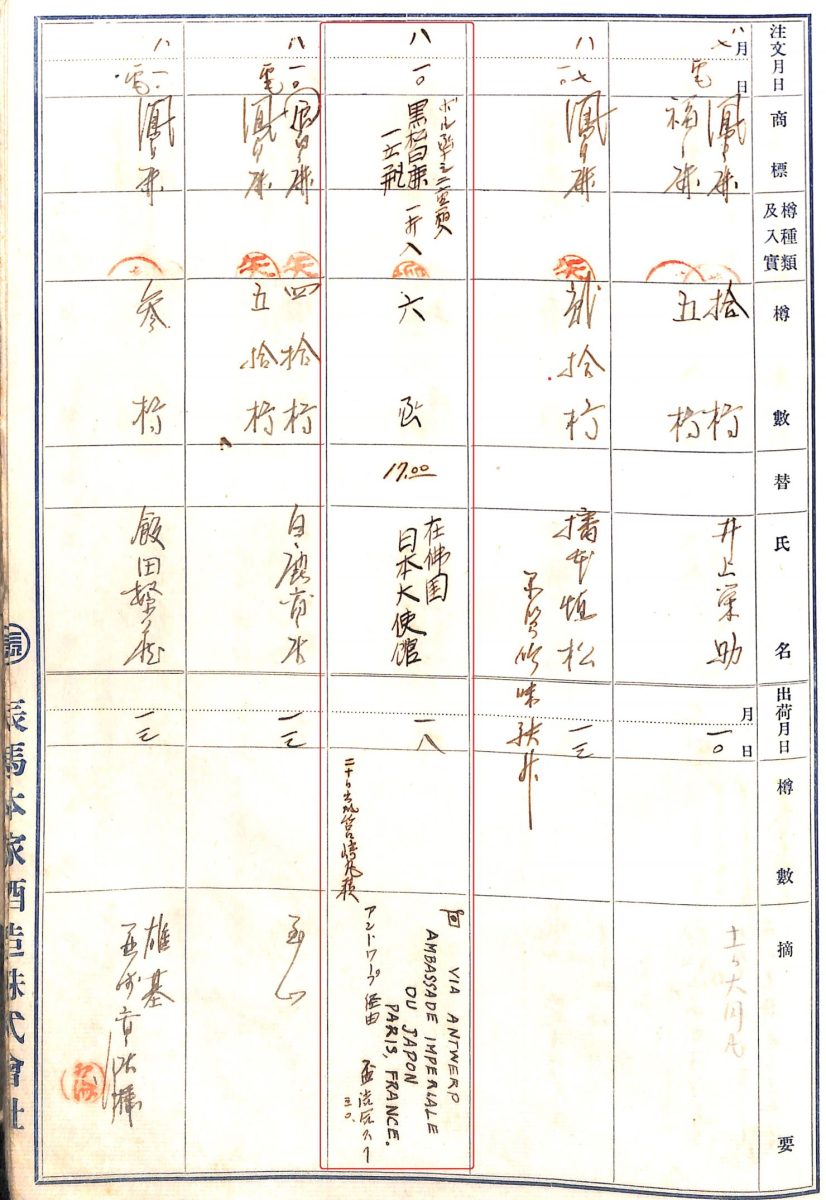
From “the Book of Order Sheets for Export” in 1936, we can read that the Embassy of Japan in France placed an order on August 10 for six dozen bottles of Sake, Kuromatsu Hakushika.
The ambassador to France at this time, Satō Naotake, resigned and returned to Japan in 1936, and the following year he became Minister of Foreign Affairs in the cabinet of Hayashi Senjūrō. Maybe Kuromatsu Hakushika was offered at a leaving party or something.
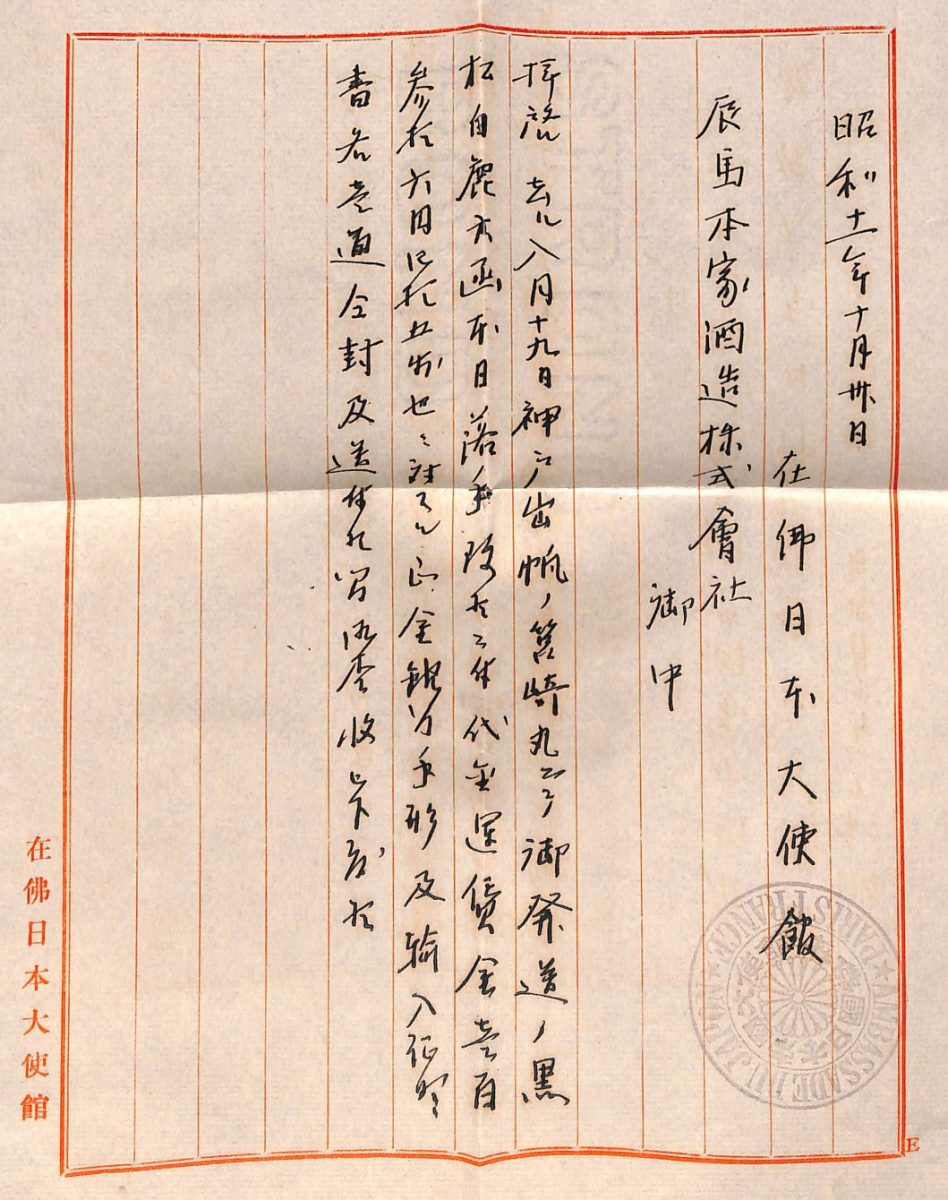
Well, how were these sake transported from Japan to the French Embassy? In the document, descriptions about “loaded on Hakozakimaru” and “via Antwerp” are remained. Hakozakimaru was the vessel owned by Nippon Yūsen (Japan Mail Shipping Line) and it sailed on the route to Europe. On August 19, 1936, the Hakozakimaru departed the port of Kobe with a cargo of these sake and reached the port of Antwerp, Belgium via the Strait of Malacca, the Indian Ocean, the Suez Canal, the Mediterranean Sea, and the Strait of Gibraltar, where the vessel unloaded its cargo. And then, the sake was transported from Antwerp to Paris using trains, and it reached to the French Embassy on October 30.
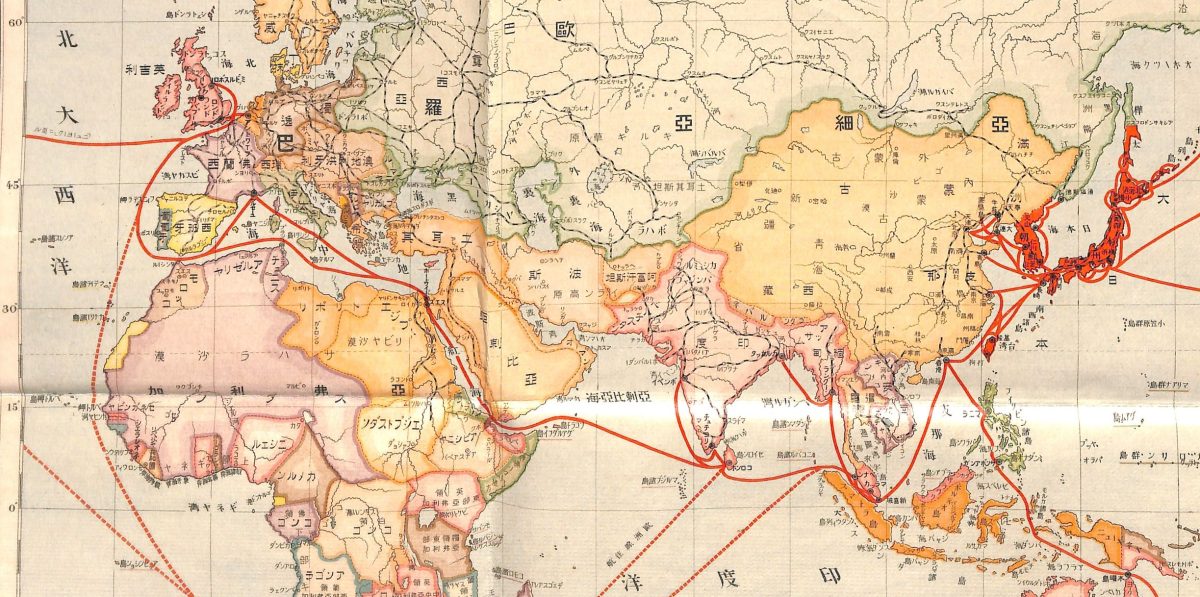
In this issue, we introduced how were the sake ordered by the Embassy of Japan in France delivered. Because the vessels had to cross the equator and other harsh shipping routes, and taking about two and a half months to arrive, sake breweries were required to ensure unaltered quality of sake.
Let’s drink high quality modern sake and cheer on the athletes competing in the Olympics and Paralympics, Paris 2024. We look forward to seeing you again next time!

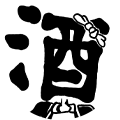
-scaled.jpg)

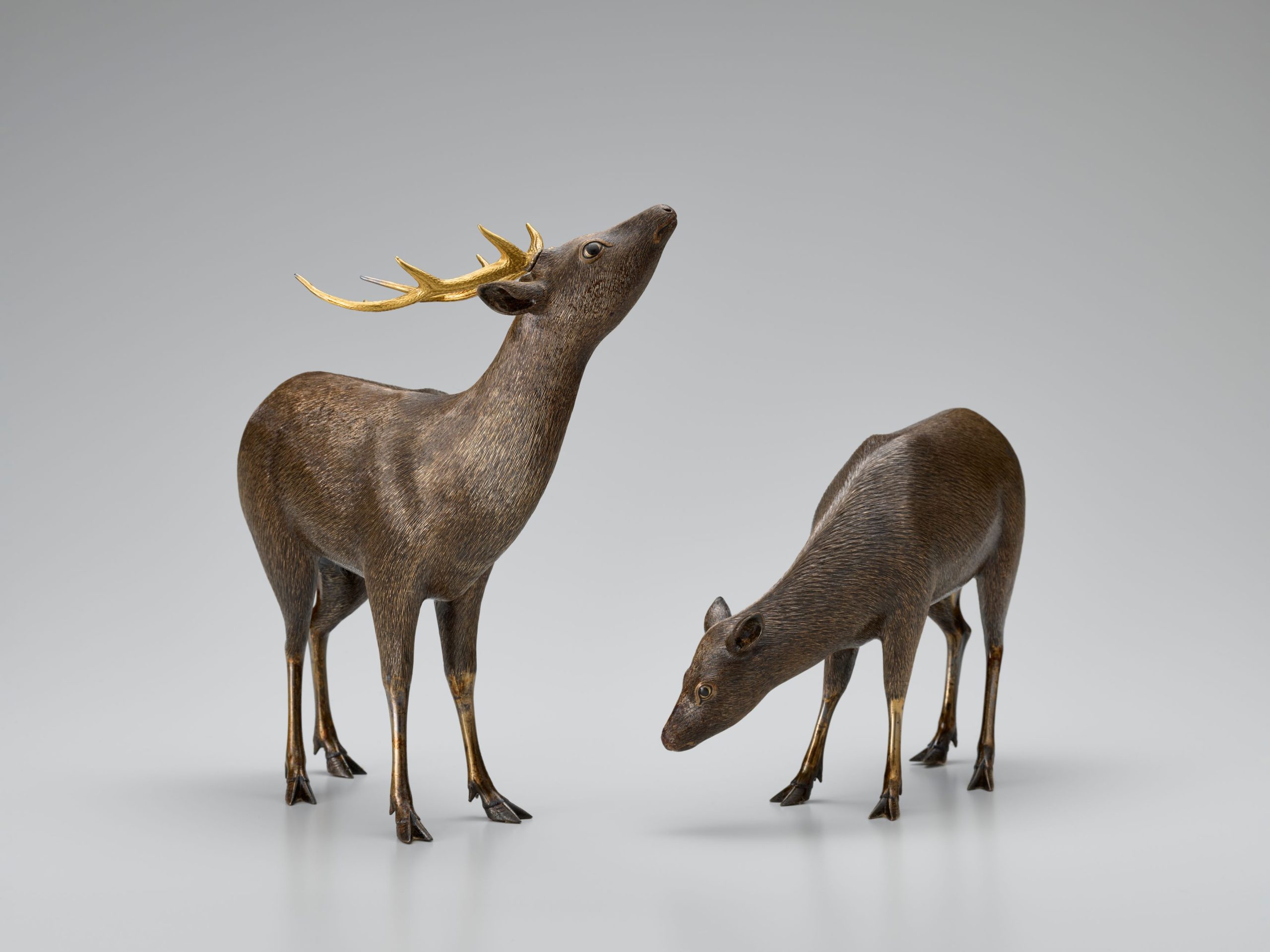
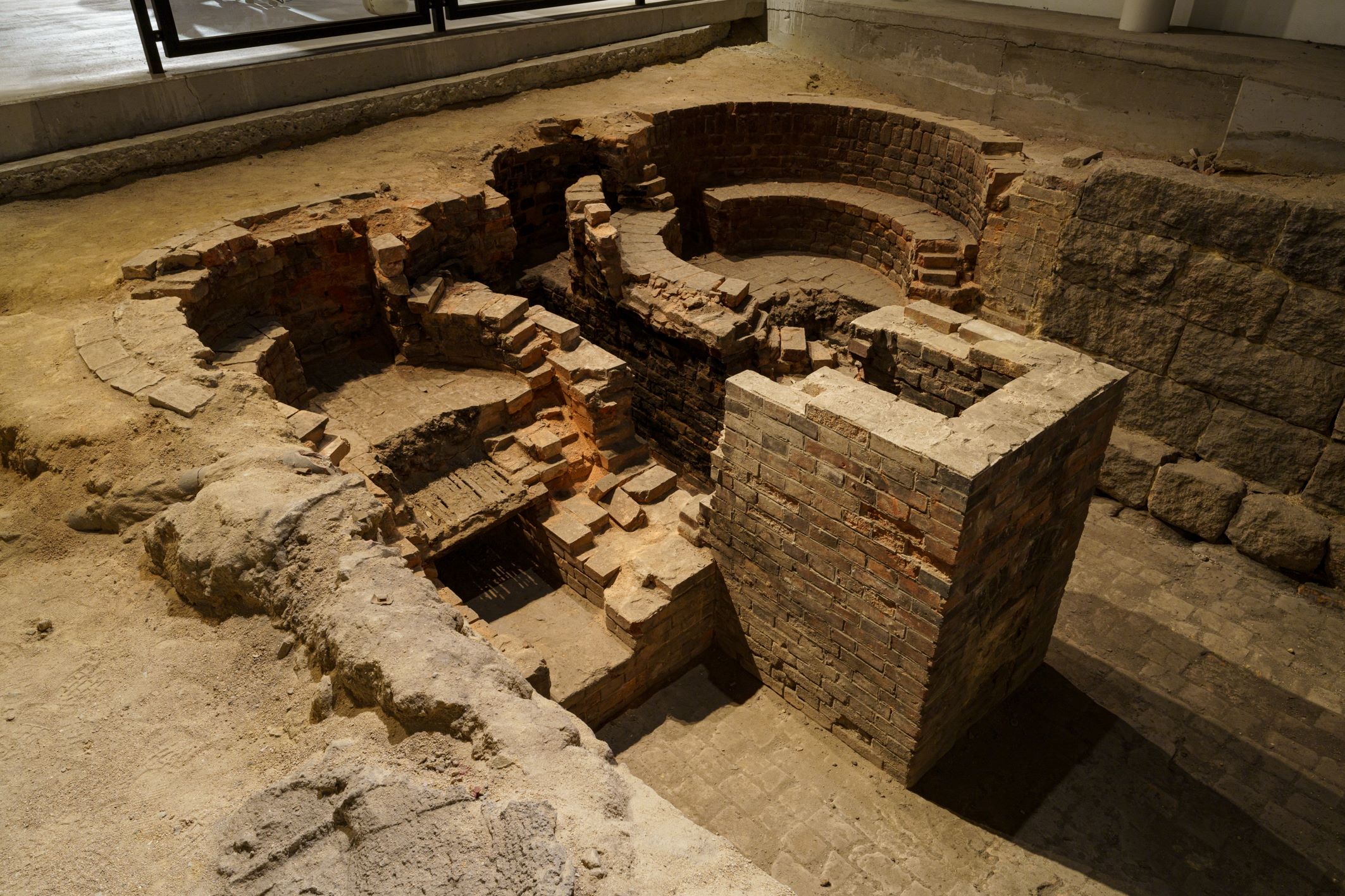
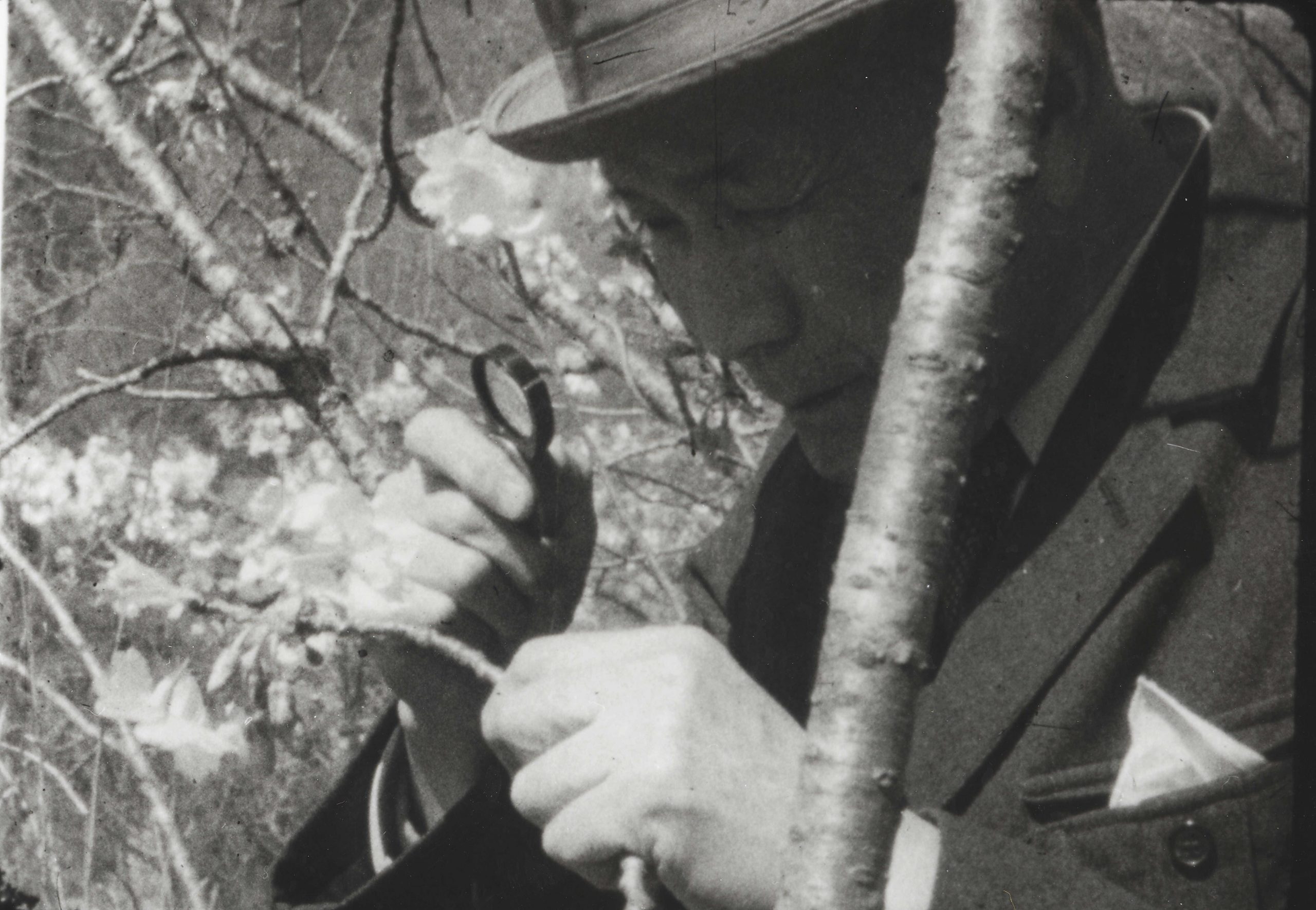


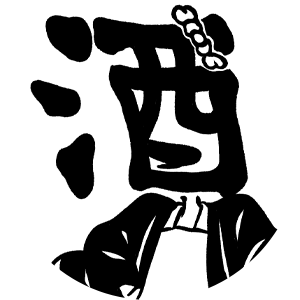

They are very gorgeous!